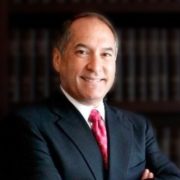DEAR Atty. Gurfinkel:
I entered the US under an assumed name. When I filed for adjustment of status, I had to file a fraud waiver (Form I – 601). Unfortunately, USCIS denied my fraud waiver along with my adjustment of status application. I am so depressed and want to know if there is anything I can do, or if there is hope with my case. Please help.
Very truly yours,
L.S.
Dear L.S.:
If a person commits fraud or a “material misrepresentation,” the person is ordinarily required to submit a fraud waiver, waiver of inadmissibility, or form I–601, basically asking USCIS to “forgive” them, based on the “extreme hardship” being suffered by the person’s spouse or parent who is a US citizen or lawful permanent resident (qualifying relative).
In some cases, the fraud waiver is denied, usually because the person has not demonstrated sufficient evidence of extreme hardship on their qualifying relative. At that point, the person has the option of either appealing the denial to the Administrative Appeals Office (AAO) in Washington DC, or filing a new fraud waiver, with a stronger and better package or presentation of extreme hardship on a qualifying relative, including any new evidence of hardship factors (e.g. recently diagnosed illness, loss of job, death in the family) which were not previously submitted.
If the person appeals to the AAO, they’re limited to the “record on appeal,” or the same showing of extreme hardship they made to the USCIS officer. If their presentation or packaging was not strong enough, then their chances of winning on appeal are greatly reduced. In addition, it can sometimes take years for the AAO to decide an appeal.
An alternative is filing a new fraud waiver, with a stronger presentation and perhaps new evidence of additional extreme hardship factors on qualifying relatives. I have had many people come to me with denied fraud waivers, and in evaluating whether to appeal or file a new fraud waiver, the original presentation was very weak and sparse, with hardly any evidence of extreme hardship. In those cases, it might be a waste of time to file an appeal, as it is likely to be denied.
Instead, we filed new fraud waivers, with stronger showings of extreme hardship on the qualifying relative. Fortunately, those new fraud waivers were approved. Now I am not guaranteeing that if you file a new fraud waiver, it will be approved. It all depends on the facts of the case, and if the evidence of extreme hardship is properly packaged and presented. But sometimes a better packaged “new” fraud waiver could be more productive than appealing the denial of a poorly presented original fraud waiver. And remember, nothing in the law forbids a person from filing a new fraud waiver if the original one is denied.
If your fraud waiver was denied, seek the advice of an attorney, who can evaluate your situation, and determine the best course of action– whether to appeal or file a new fraud waiver. And if a new fraud waiver is to be filed, make sure it is properly packaged and you have a very strong evidence of extreme hardship on your qualifying relative.
* * *
Michael J. Gurfinkel is licensed, and an active member of the State Bar of California and New York. All immigration services are provided by, or under the supervision of, an active member of the State Bar of California. Each case is different. The information contained herein including testimonials, “Success Stories,” endorsements and re-enactments) is of a general nature, and is not intended to apply to any particular case, and does not constitute a prediction, warranty, guarantee or legal advice regarding the outcome of your legal matter. No attorney-client relationship is, or shall be, established with any reader.
WEBSITE: www.gurfinkel.com
Call Toll free to schedule a consultation for anywhere in the US:
(866)—GURFINKEL
Four offices to serve you: LOS ANGELES · SAN FRANCISCO · NEW YORK · PHILIPPINES







